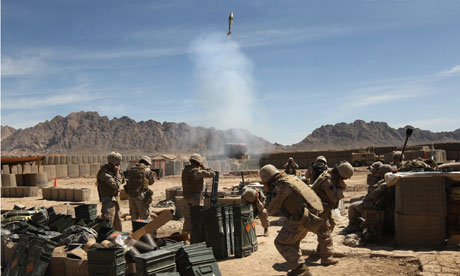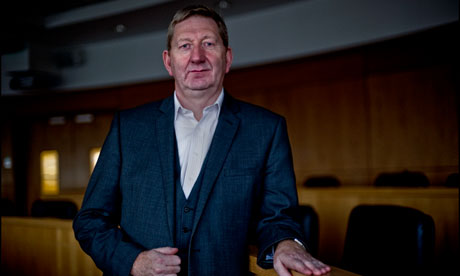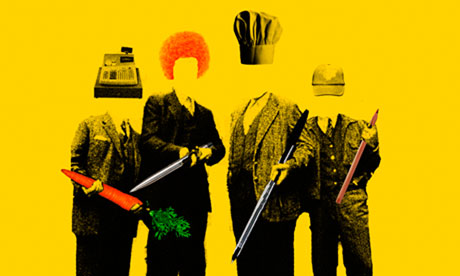Aam Aadmi Party
The Supreme Court has ordered a court monitored CBI investigation in 14 cases of criminality and corruption which are apparent from the corporate Broker/fixer Niira Radia's phone conversations recorded by the Income Tax department, some of which got leaked into the public domain. In these conversations, Radia, who was the paid lobbyist employed by Mukesh Ambani and Ratan Tata among others, is talking about fixing cabinet berths, influencing important policy and other decisions of the government, fixing the appointment of regulators, bribing regulators, corruptly influencing the judiciary, planting stories in the media, and even influencing discussions on bills in Parliament.
The Radia Tapes provide a unique glimpse to the people of India on how the entire ruling establishment of the country has virtually become a puppet in the hands of large corporates like Ambani and Tata who are being able to control appointments of the cabinet, senior officials, regulators, and are able to control important decisions of the government, including laws and policies. The tapes also show how the mainstream parties like the Congress and the BJP have also become puppets in the hands of these corrupt corporates. In one conversation with Radia, Vajpayee's son in law Ranjan Bhattacharya narrates how Mukesh Ambani tells him that the Congress party has now become Ambani's shop. There is another conversation between Radia and former Finance Secretary N.K. Singh, where they successfully conspire to prevail on the BJP leadership to replace Arun Shourie with former BJP president Venkaiah Naidu in a Rajya Sabha debate to ensure the passage of a huge retrospective tax concession to Reliance Industries. All this not only shows the serious threat that corruption poses to democracy, but also why the Congress and the BJP conspired to thwart the Jan Lokpal Bill and have also ensured there are no proper Lokayuktas in the States, including in Gujarat and Delhi.
The dust that has been kicked up by the political class and the so called captains of Industry about the latest FIR against K.M. Birla and the former coal secretary in the coal mine allotment scam, and the targeting of the judiciary for pursuing this investigation, and for putting the brakes on various other mining scams in Goa and Karnataka, is indicative of the panic among this class, as they begin to feel the initial stings of accountability for this loot.
The Aam Aadmi Party wishes to make it clear that it is committed to putting an end to this loot and crony capitalism that has brought the country to economic, social and environmental ruin and has put democracy itself under threat. We believe that the bulk of the industry has been strangulated by this crony capitalism and loot and would like to be liberated from this corruption. It is only some corporates who have grown big on this loot and corruption and who currently control substantial sections of the establishment who are crying foul about the laudable actions of the judiciary to check this corruption. They must realize that this loot cannot and will not be allowed to go on. A political revolution is in the offing which will sweep away not just these corrupt political parties but also these crony capitalist if they do not mend their ways.
The Supreme Court has ordered a court monitored CBI investigation in 14 cases of criminality and corruption which are apparent from the corporate Broker/fixer Niira Radia's phone conversations recorded by the Income Tax department, some of which got leaked into the public domain. In these conversations, Radia, who was the paid lobbyist employed by Mukesh Ambani and Ratan Tata among others, is talking about fixing cabinet berths, influencing important policy and other decisions of the government, fixing the appointment of regulators, bribing regulators, corruptly influencing the judiciary, planting stories in the media, and even influencing discussions on bills in Parliament.
The Radia Tapes provide a unique glimpse to the people of India on how the entire ruling establishment of the country has virtually become a puppet in the hands of large corporates like Ambani and Tata who are being able to control appointments of the cabinet, senior officials, regulators, and are able to control important decisions of the government, including laws and policies. The tapes also show how the mainstream parties like the Congress and the BJP have also become puppets in the hands of these corrupt corporates. In one conversation with Radia, Vajpayee's son in law Ranjan Bhattacharya narrates how Mukesh Ambani tells him that the Congress party has now become Ambani's shop. There is another conversation between Radia and former Finance Secretary N.K. Singh, where they successfully conspire to prevail on the BJP leadership to replace Arun Shourie with former BJP president Venkaiah Naidu in a Rajya Sabha debate to ensure the passage of a huge retrospective tax concession to Reliance Industries. All this not only shows the serious threat that corruption poses to democracy, but also why the Congress and the BJP conspired to thwart the Jan Lokpal Bill and have also ensured there are no proper Lokayuktas in the States, including in Gujarat and Delhi.
The dust that has been kicked up by the political class and the so called captains of Industry about the latest FIR against K.M. Birla and the former coal secretary in the coal mine allotment scam, and the targeting of the judiciary for pursuing this investigation, and for putting the brakes on various other mining scams in Goa and Karnataka, is indicative of the panic among this class, as they begin to feel the initial stings of accountability for this loot.
The Aam Aadmi Party wishes to make it clear that it is committed to putting an end to this loot and crony capitalism that has brought the country to economic, social and environmental ruin and has put democracy itself under threat. We believe that the bulk of the industry has been strangulated by this crony capitalism and loot and would like to be liberated from this corruption. It is only some corporates who have grown big on this loot and corruption and who currently control substantial sections of the establishment who are crying foul about the laudable actions of the judiciary to check this corruption. They must realize that this loot cannot and will not be allowed to go on. A political revolution is in the offing which will sweep away not just these corrupt political parties but also these crony capitalist if they do not mend their ways.





